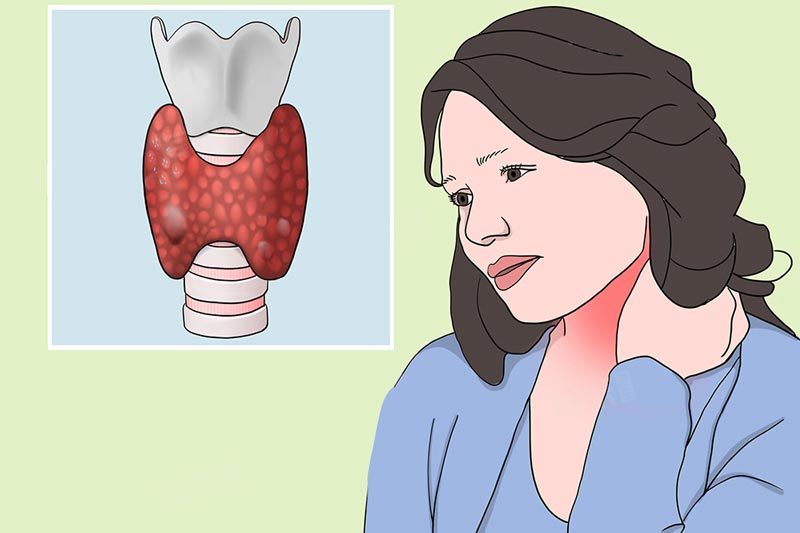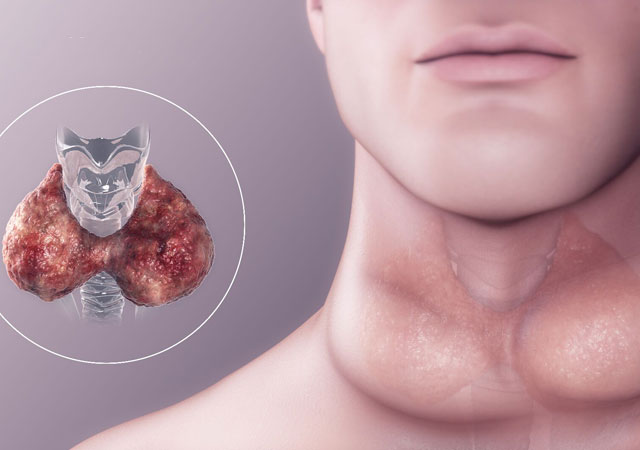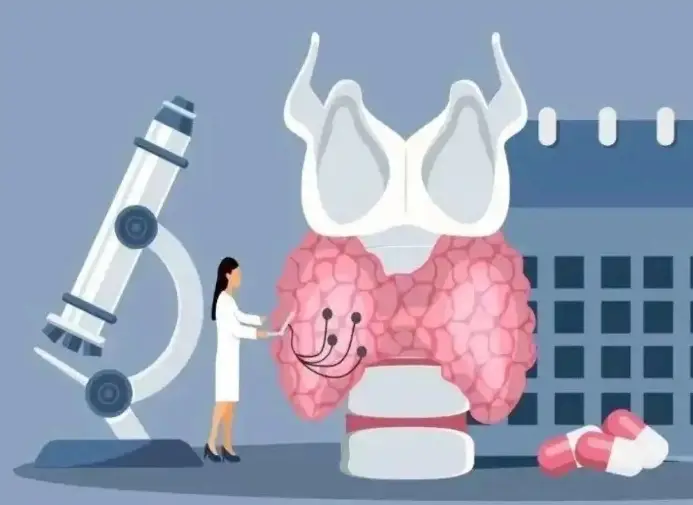Although located in the neck and weighing only 20-30 grams, the thyroid gland is a vital endocrine organ, known as the "engine of the body." The thyroid hormones it secretes regulate key physiological processes, including metabolism and growth and development.
Once thyroid function is abnormal, the effects extend beyond the neck and can affect multiple systems throughout the body, leading to a variety of atypical symptoms that can be easily overlooked. Therefore, be vigilant.

Patients with hyperthyroidism (hyperthyroidism) often experience systemic symptoms related to increased metabolism.
- In addition to possible mild neck swelling, more typical symptoms include unexplained palpitations and hand tremors, and even a rapid heartbeat while sitting still.
- Increased appetite coupled with continued weight loss. Some people also experience increased bowel movements and diarrhea. They may also experience irritability, anxiety, difficulty concentrating, and even insomnia.
- Heat intolerance and excessive sweating are also common symptoms. Even in a cool environment, sweating may occur frequently, and the skin may remain damp.
These symptoms can easily be mistaken for anxiety, gastrointestinal problems, or simply a physical condition, leading to delayed diagnosis.

Hypothyroidism (underactive thyroid) presents the opposite symptoms of hyperthyroidism, characterized by a slowed metabolism.
- Patients often experience general fatigue and tiredness after activity, finding even simple daily activities strenuous.
- Patients may be significantly colder, with hands and feet often feeling colder than others at the same temperature.
- Weight gain may occur without apparent cause, accompanied by significant edema, particularly in the eyelids, face, and lower extremities, which may sag when pressed.
- Skin may become dry and rough, hair may become dry and brittle, and nails may grow slowly and break easily. Emotional symptoms include low mood, depression, slowed reaction times, and memory loss.
These symptoms can easily be mistaken for sub-health or signs of aging, and require particular attention, especially in the elderly.

Although thyroid nodules are generally benign, some may cause systemic symptoms.
In addition to a few people experiencing a lump in the neck or a foreign body sensation when swallowing, if a nodule affects thyroid hormone secretion, symptoms similar to those of hyperthyroidism or hypothyroidism may occur.
Large nodules may compress surrounding tissues and cause hoarseness and difficulty breathing. In addition, malignant thyroid nodules (thyroid cancer) may rarely be accompanied by swollen lymph nodes in the neck. If you notice painless, firm lymph nodes in your neck, you should seek medical attention promptly.
In your daily life, if you experience any of the above suspected symptoms, do not make a single judgment based on a single symptom. See a doctor promptly for a thyroid function test and thyroid ultrasound to determine your thyroid health.
Also, maintaining a regular schedule, a balanced diet, moderate intake of iodine-rich foods (avoiding excess or deficiency), and regular physical examinations can help protect your thyroid health and prevent the systemic harm caused by thyroid disease.

%20--%3e%3c!DOCTYPE%20svg%20PUBLIC%20'-//W3C//DTD%20SVG%201.1//EN'%20'http://www.w3.org/Graphics/SVG/1.1/DTD/svg11.dtd'%3e%3csvg%20version='1.1'%20id='图层_1'%20xmlns='http://www.w3.org/2000/svg'%20xmlns:xlink='http://www.w3.org/1999/xlink'%20x='0px'%20y='0px'%20width='256px'%20height='256px'%20viewBox='0%200%20256%20256'%20enable-background='new%200%200%20256%20256'%20xml:space='preserve'%3e%3cpath%20fill='%23FFFFFF'%20d='M194.597,24.009h35.292l-77.094,88.082l90.697,119.881h-71.021l-55.607-72.668L53.229,232.01H17.92%20l82.469-94.227L13.349,24.009h72.813l50.286,66.45l58.148-66.469V24.009z%20M182.217,210.889h19.566L75.538,44.014H54.583%20L182.217,210.889z'/%3e%3c/svg%3e)